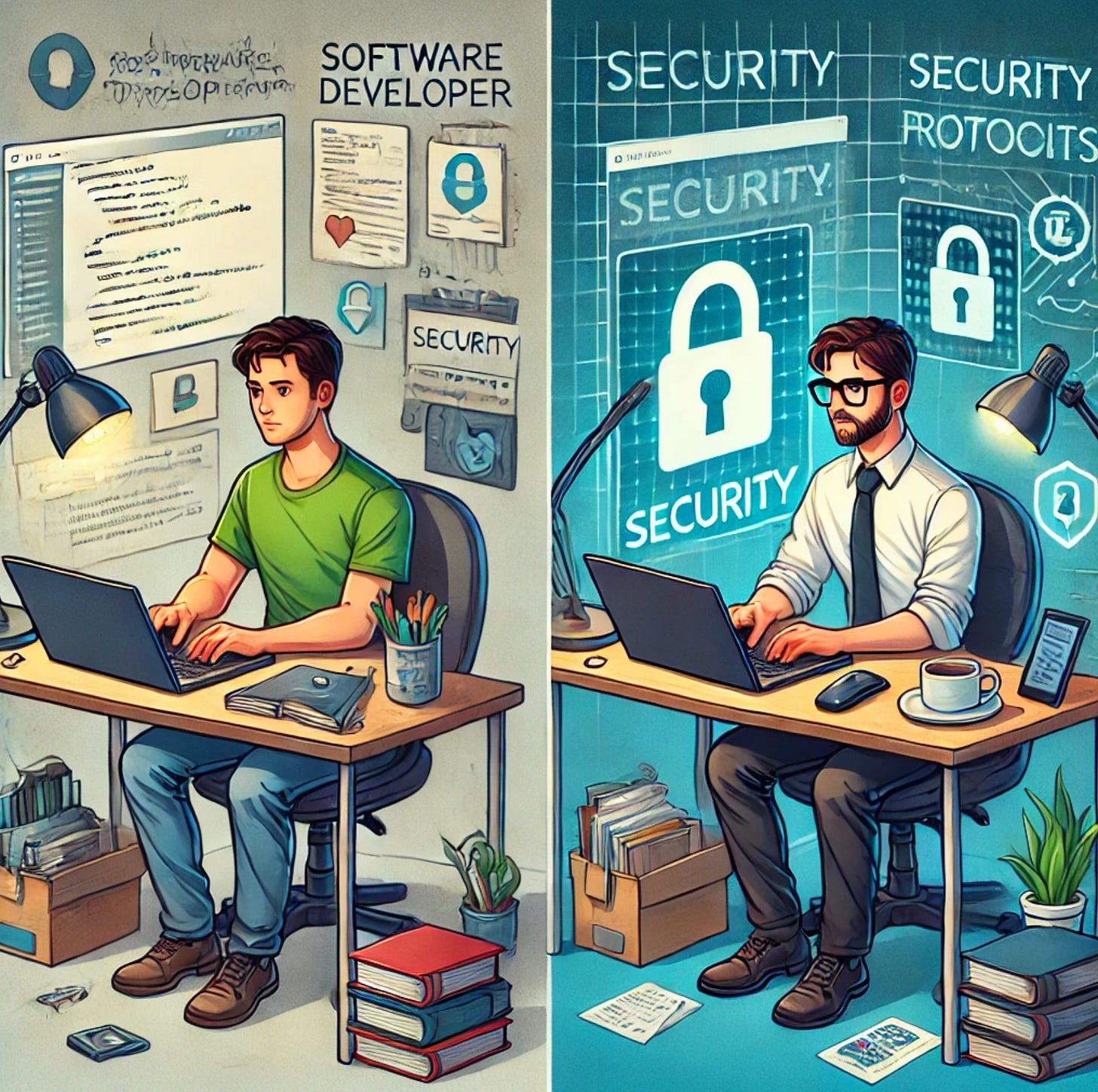Software Devs Are Panicking About AI .. Here’s Why Cybersecurity Is a Smart Escape Route
Use these tips to carry out that career shift in a simple and effective manner.
“I am worried about the future of Software Development because of this whole AI thing .. How do I move to Cybersecurity ??”
This is a question I was asked recently by someone I was mentoring.
And it’s becoming more common.
With tech layoffs still making headlines and Agentic AI reshaping the software landscape, it’s no surprise that many developers are rethinking their career paths.
Let me say it upfront
Yes, moving from software development to cybersecurity is absolutely possible — and often a strategic move.
In fact, a background in software development gives you a massive edge.
But before we talk about how to switch, let’s talk about why developers are anxious.
AI is rapidly transforming the tech industry.
Companies like Microsoft and OpenAI are leading this change, integrating AI agents into their development workflows.
However, this shift has also led to significant workforce changes.
In 2025 alone, over 61,000 tech jobs have been cut across more than 130 companies, including major players like Microsoft and Google
Cybersecurity is also not 100% safe from the AI monster (which industry is ?) but it still offers a good alternative for those who to move away from Software Development
Let’s take a look at how this can be done.
Why Software Developers Have an Edge in Cybersecurity
One of the biggest mistakes I see Software Developers making is thinking they have to start all over.
This is a huge mistake.
Software developers have some amazing skills that cross over into Cybersecurity.
Lets look at a few:
Strong Technical Foundation: Your understanding of programming, system architecture, and development processes is invaluable in cybersecurity.
Problem-Solving Skills: Cybersecurity is about identifying and mitigating risks — skills you excel at as a software developer!
Attention to Detail: Your knack for writing flawless code translates well to spotting vulnerabilities and ensuring security compliance.
Experience with DevOps: Knowledge of CI/CD pipelines and automated testing is crucial for roles in security automation and DevSecOps.
Insight into Software Vulnerabilities: Understanding common coding flaws helps identify and prevent security breaches.
Take note of these skills before moving on to the next step
Identify Roles With The Easiest Transition
If you are a software developer and decide to move into a governance, risk, and compliance role in cybersecurity, you will face challenges.
Why?
Because none of the skills we talked about apply here
It makes more sense to map those skills to those cybersecurity roles where you can easily leverage your experience
Some of the key roles I would recommend are:
Application Security Engineer: Leverage your coding skills to identify, fix, and prevent security vulnerabilities in software applications.
DevSecOps Engineer: Integrate security practices into the DevOps process, ensuring that security is a part of every stage of development.
Penetration Tester: Utilize your coding and debugging skills to identify security weaknesses by ethically hacking systems.
Cloud Security Engineer: Code Infra as Code and Serverless Functions with built-in security controls.
These skills have the easiest learning curve as you can take advantage of your coding background.
Get Certified and Hands-On:
You know your skills, and you know what role you want .. time to get certified !
This is the third step, but I often see people thinking it is the first, which is another mistake.
Consider certifications like CISSP, CEH, or CompTIA Security+ to boost your profile.
While prepping for the cert .. start getting hands-on with Cybersecurity:
Try out security-focused projects or volunteer for security tasks in your current role.
Enroll in Hands-On Courses: Numerous online courses offer hands-on labs and practical exercises, such as TryHackMe and HackABox.
Create a Security Lab: Create a personal lab environment to practice security skills. Use tools like VirtualBox, Vagrant, and Docker to simulate network environments and experiment with things like penetration testing, malware analysis, and incident response.
Contribute to Open Source Projects: Many open-source projects need help with security. Contributing to these projects can provide real-world experience and help you build a portfolio of work.
Write About Your Experiences: Document your journey and share your experiences on platforms like LinkedIn or a personal blog. Writing about what you learn reinforces your knowledge and helps you network with industry professionals.
Find a Mentor
A mentor can cut your journey in half
Find someone ahead of you and ask them for guidance
Their real-world insights and tips can help you avoid major missteps and mistakes.
This can be within your organization or someone outside .. but find someone and reach out to them.
The worst that will happen is that they will say NO as they don’t have the time.
But what if they say yes ??
That wraps it up!
A journey from software development to cybersecurity is not just about getting certifications but needs a properly executed plan.
Check out my detailed video on this, and good luck in your journey!




